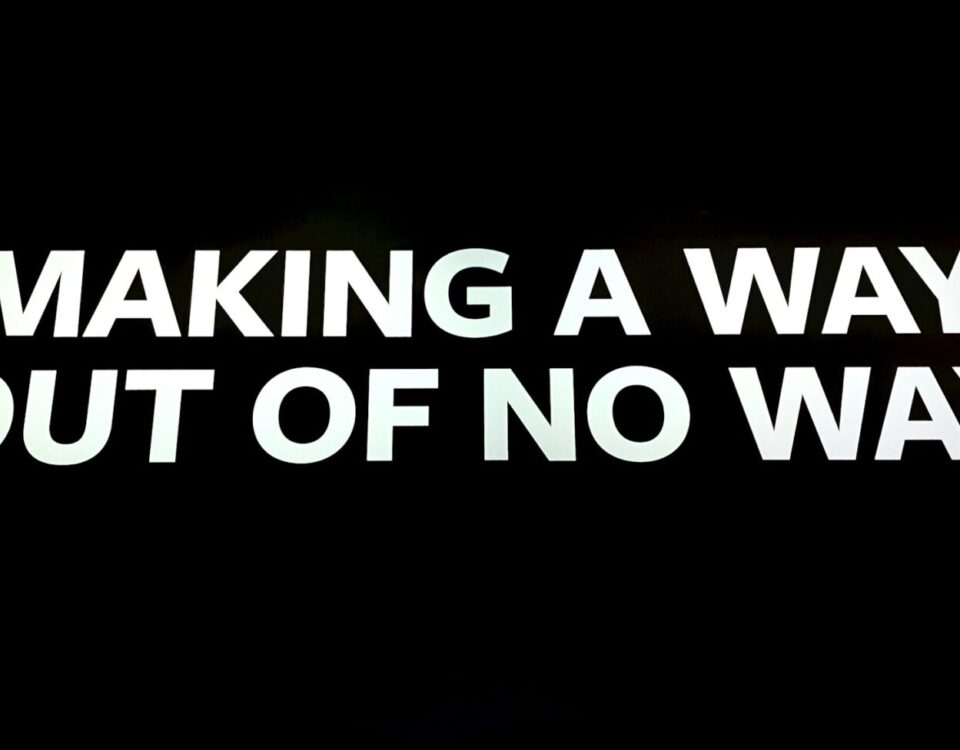
Whose Voice?
August 23, 2023
Your Self-Talk Matters
September 6, 2023Accepting your badassness: What do you say about yourself to yourself? How does this impact your ability to be resilient? In this blog series we are looking at how to assess yourself through a kinder, more accurate lens. The goal is to have a realistic view allowing for growth and appreciation. The stories you tell yourself influence your life choices in big and small ways. Having accurate self-awareness is a powerful tool in your self-care and resilience.
Tune In to the Positive
Last week I suggested you pay attention to whose voice you are hearing in your head. Notice this internal commentary and decide if it deserves to be heard. Don’t let negative, unkind, or untrue beliefs play over and over. Once you have the ability to filter those voices, you can take it a step farther by inviting other voices in. Open yourself up to kindness, inspiration, and encouragement.
It is amazing how quickly your brain alerts to criticism and how much weight it will give a negative comment. Even neutral comments may be interpreted negatively. This is because you are fine tuned to notice exclusion. Your brain processes social exclusion in the same way it processes physical pain. And yet, you can choose how you direct your attention. You can tune in to people who are empowering.
I am inviting you to deliberately tune in to those who send positive messages about you.
Your brain needs a reminder to put up your antenna and tune in to positivity. You may have a habit of brushing off kind statements and holding on to the negative. To have an accurate and more helpful inner voice, you need to tune into all the messages, particularly those which communicate to you your strengths and your inherent worth. Here are a few ways to do this:
Accept a Compliment
When someone says something nice about you let it sink in, believe it, absorb the message. This can be uncomfortable. If you were brought up to be overly modest and not “proudful”, you will likely duck the compliment (picture water being poured onto a duck, it doesn’t sink in). There are a lot of creative ways to duck compliments. Attribute the compliment to the giver’s generosity: “She’s just saying that because she’s nice.” Counter the compliment with a fault: “it worked out this time, usually I mess it up.” Pass the compliment on: “I was raised to be like this.” Instead, I suggest you hear the compliment, say thanks, and consider that it may be true. When you start hearing the same compliment over and over, you need to consider what the data reveals: it is true. Let that truth sink in, allow yourself to feel good about your strengths.
Apply Inspirational Messages to Yourself
Listen to, or read people, who convey positive messages and believe that they mean you. For example, this quote from Brené Brown from Braving the Wilderness:
“No one belongs here more than you.”
She means you. Not some vague other person. You who are reading these words, sitting in your house, riding on a bus, or standing in line at the store. As much as anyone else, you belong here – you. You belong. In this world, on this planet, in your community, you belong. You matter. You have worth.
Inspirational messages are everywhere. Find one or two that resonate with you and consider that they mean you, too. Incorporate them into your thinking about yourself. Literally look at yourself in the mirror and say them to yourself. Use them as a screen saver and take them in. Add that positivity to your brain.
Validate Your Own Accomplishments
When I work with little kids, I spend a lot of time focused on “catch them being good.” I notice strengths and positive behavior then consider what led to that and how to encourage more of it. This results in a positive upward spiral. Given that you are an adult perhaps you might “catch yourself being badass.” Notice when you do something that requires courage, makes a positive difference, or uses your abilities skillfully. These can be big things that are a stretch for you, or the everyday stuff you do that makes the world a kinder place. Name what you did and allow yourself to feel proud of your efforts. Add this to your self-assessment.
Including positive statements in your self-assessment gives you a more accurate view of yourself. This increases your resilience and ability to tolerate difficult times. You are more likely to to ask for what you want and need if you feel you deserve as much care and consideration as anyone else. Build your positive self-assessment by accepting compliments, realizing positive aspirations apply to you too, and keeping your antenna open for seeing your own strengths. If you are feeling really brave, tell a good friend or your therapist that you are working on your self-assessment. Ask them to share one or two strengths they see in you. And then believe them!
Peace,
Laura A. Gaines
To learn more, explore learnmodelteach.com for tools, videos, and coaching opportunities.





